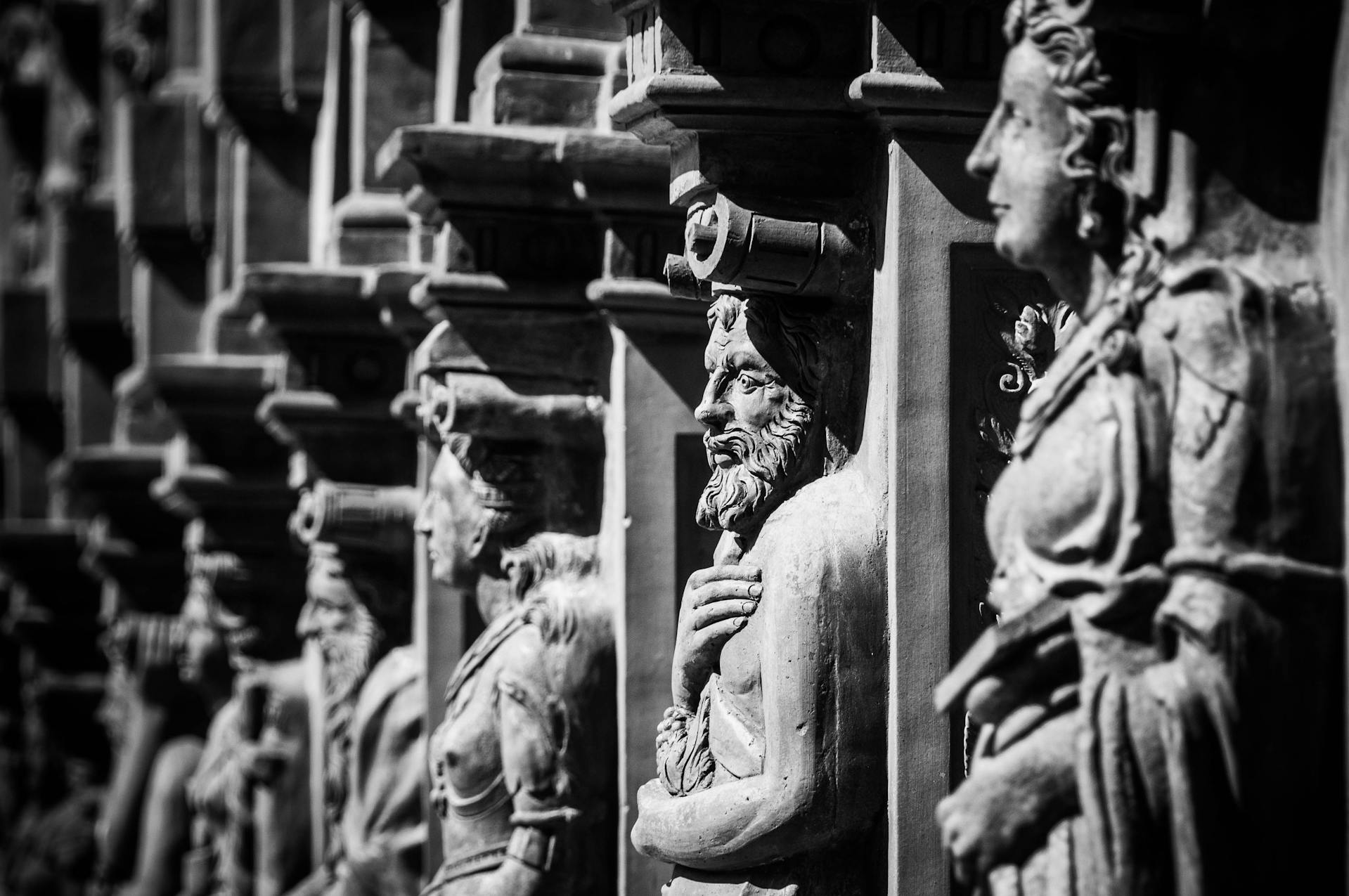Have you ever heard someone say something that made you go “huh?” without any context? It’s like trying to jump into a movie halfway through—you’re lost, confused, and missing crucial information to understand what’s going on fully.
The same applies to critical thinking and analysis. Without understanding the historical context behind an idea, event, or issue, it’s easy to misinterpret or miss important nuances. That’s why grasping the historical context is vital for truly thoughtful and well-rounded critical thinking.
What Is Historical Context?
Historical context refers to the specific circumstances, events, and socio-cultural factors surrounding something from the past. It’s the backdrop that shaped and influenced ideas, decisions, actions, or creations from a particular point in history.
For example, to understand the historical context of the American Civil War, you’d need to know about the economy, politics, and social issues related to slavery in the pre-war Southern states. The divide between the industrial North and agricultural South created tensions that ultimately erupted into conflict.
Why Historical Context Matters for Critical Thinking
Imagine trying to critique a piece of classical art without knowing anything about the time period or artist’s life when it was created. You’d likely miss important symbolism, influences, and the work’s broader significance. That’s why understanding historical context is so crucial for effective critical thinking.
It prevents misinterpretations
Without the proper backdrop, it’s easy to misconstrue the original meaning or intent behind something. For instance, some people take the U.S. Constitution’s reference to “all men are created equal” at face value from a modern perspective. However, in the historical context of the late 18th century, that phrase didn’t extend equality to women or people of color.
Failure to account for historical context can lead to flawed conclusions based on incomplete information. It’s like judging a book by its current cover without reading its contents within the original context.
It provides valuable perspective
Historical context gives you a window into the mindset, challenges, and constraints that shaped a particular way of thinking or event. For example, consider the context of World War II from the perspective of American civilians. Lacking modern technology and continuous news updates, they had to make decisions with limited information compared to what we’re accustomed to today.
Grasping that context provides a fuller picture to analyze events, decisions, or philosophies through a more informed lens. You can view them through the appropriate perspective of that time rather than applying modern assumptions.
It reveals underlying factors
On the surface, some events or philosophical ideas might seem outrageous or nonsensical. However, digging into the historical context often exposes underlying social, political, or economic factors that influenced them.
For example, the philosophical movement of existentialism took hold in Europe in the 19th and 20th centuries against the backdrop of two world wars and industrial growth. The context of those sweeping changes in society and questions about the meaning of life shaped that school of thought.
Historical Context in Action: The Printing Press
Let’s look at a brief example to illustrate the importance of historical context through the lens of the printing press:
The Printing Press Innovation
- Invented by Johannes Gutenberg around 1440 in Germany
- Allowed books and writings to be mass-produced for the first time
Historical Context:
- Medieval period with high illiteracy rates prior to the printing press
- Hand-written books were extremely limited and costly
- The Catholic Church held a monopoly on academic and religious teachings
Impact of Historical Context:
- The printing press facilitated an explosion of bookmaking and literacy
- It broke the Church’s control over the spread of information
- This free flow of ideas fueled the Renaissance and emboldened reformists like Martin Luther
Without accounting for the historical context, the true revolutionary impact of Gutenberg’s printing press innovation is diminished. Understanding the backdrop highlights how it ushered in a democratization of knowledge and empowered critical thinkers challenging the status quo.
How to Consider Historical Context
So how can you integrate historical context into your own critical thinking process? Here are some tips:
- Research the background surrounding your topic, idea or event
- Consider the contemporary social, political, economic, and cultural factors
- Look for first-hand accounts or writings from that time period
- Be aware of your own modern assumptions or biases
- Ask “Why?” to dig into the underlying forces behind events or philosophies
Essentially, you want to immerse yourself in that historical setting as much as possible. Doing so will help you analyze the issue through a more authentic lens beyond just your modern perspective.
TL;DR
Critical thinking requires understanding the historical context behind events, ideas, and issues. This context:
- Prevents misinterpreting meaning or intent
- Provides insight into the contemporary mindset and constraints
- Reveals underlying social, political, and economic factors
Without this context, your analysis remains surface-level and risks inaccurate conclusions based on incomplete information. Taking a historical perspective allows you to make sense of the “why” and view things through the appropriate lens rather than solely modern assumptions.
Q&A
Q: Why is understanding the historical context so important?
A: It prevents misunderstandings or oversimplifications by providing crucial background information. Context clues you into the contemporary factors that shaped events, decisions, or philosophies.
Q: How can I start considering historical context in my analyses?
A: Research the relevant time period, read first-hand accounts, be aware of modern biases, and keep asking “Why?” behind surface-level events or ideas.
Q: Does examining historical context make analysis more complicated?
A: In some ways, yes – because you have to build a more comprehensive understanding first. However, it leads to richer, more insightful and accurate analysis in the end.
Q: Is it always necessary to go so in-depth into historical context?
A: The level of context needed depends on the complexity of the issue, event or idea. For deeper philosophical or social topics especially, extensive historical context is invaluable.
Quiz
- True or False: Historical context is mainly important for examining old events from hundreds of years ago. A) False – Historical context matters for understanding events, ideas or issues from various time periods in the past relative to the present.
- Why does a lack of historical context lead to misinterpretations? A) It causes us to view things solely through our modern lens and assumptions B) It prevents us from seeing the full picture and intent behind decisions or ideas C) We risk oversimplifying things and missing key nuances or factors D) All of the above
- Which is NOT a step for considering historical context? A) Research the time period’s cultural, political and economic backdrop
B) Read modern rewrites summarizing the key historical details C) Find first-hand accounts or writings from that era D) Be aware of your current assumptions and biases - True or False: Extensively examining historical context always leads to more confusion rather than clarity. A) False – While it requires more legwork upfront, historical context leads to richer understanding and more insightful analysis.
- Which example best illustrates the value of historical context for critical thinking? A) Analyzing modern sustainability practices by a corporation B) Evaluating whether to implement a new software system at work C) Understanding the influences behind early 20th century existentialist philosophy D) Determining if a political candidate is being truthful in a debate
Answers: 1. False, 2. D, 3. B, 4. False, 5. C
Scoring:
4-5 Correct: Excellent, you understand the critical role historical context plays in effective critical thinking and analysis
3 Correct: Pretty good grasp, but there’s still room to improve your application of historical context
0-2 Correct: The importance of historical context needs more reinforcement – be sure to apply it consistently moving forward





